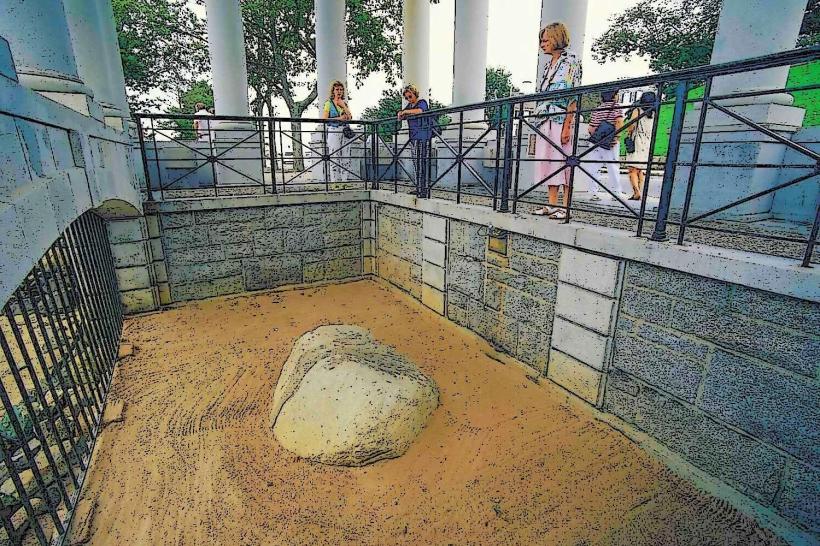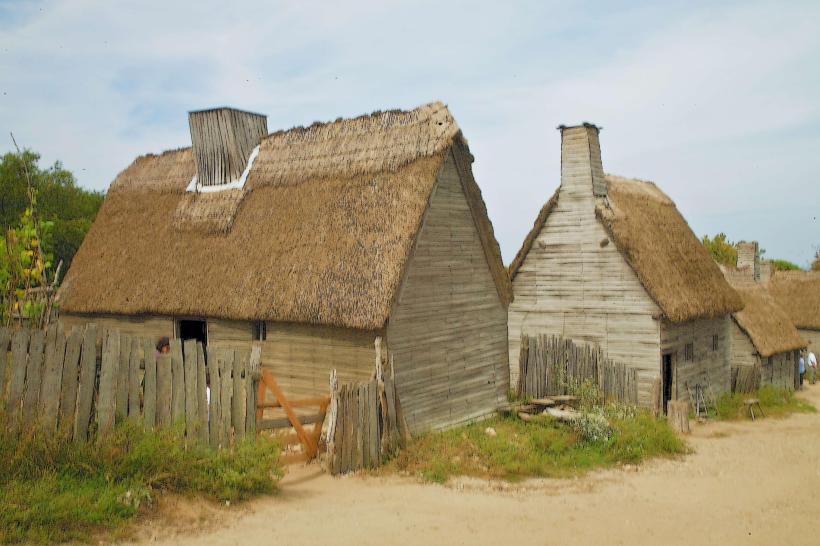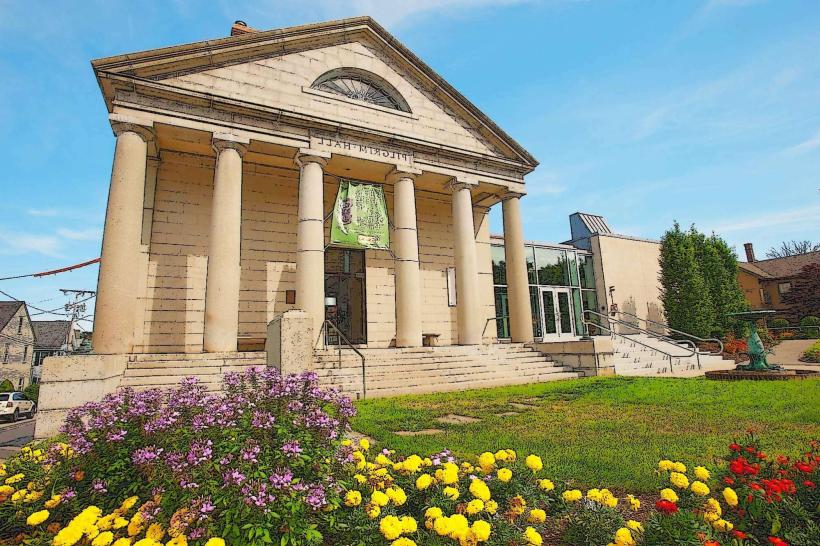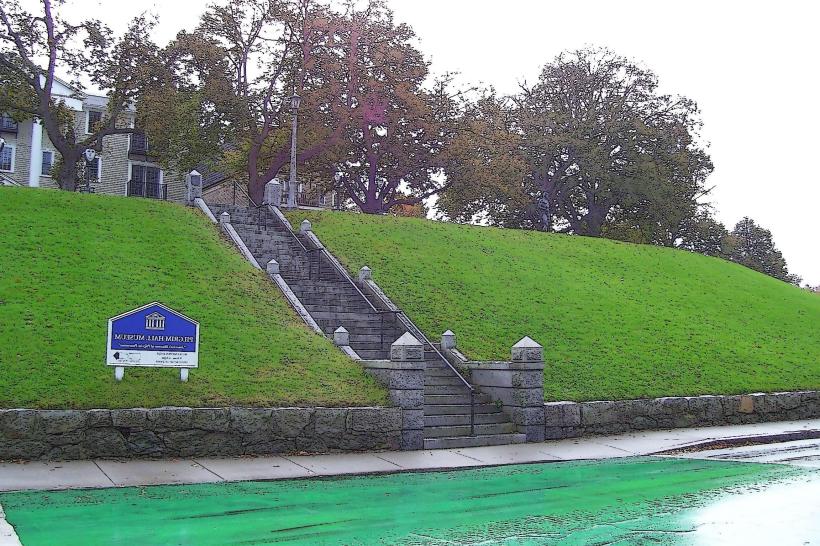Information
Landmark: Jenney MuseumCity: Plymouth
Country: USA Massachusetts
Continent: North America
Jenney Museum, Plymouth, USA Massachusetts, North America
The Jenney Museum, located in Lowell, Massachusetts, is dedicated to preserving and showcasing the rich industrial and textile heritage of the city, particularly focusing on its pivotal role during the American Industrial Revolution. Named after Francis A. Jenney, a prominent civil engineer and city planner instrumental in Lowell’s development, the museum offers a detailed glimpse into the lives of mill workers, technological advancements, and urban growth that shaped Lowell into a major industrial hub in the 19th and early 20th centuries.
Historical Context
Lowell is often called the “Cradle of the American Industrial Revolution” due to its pioneering textile mills and innovative water-powered factories established in the early 1800s. The city’s growth was driven by the expansive canal system and the labor of thousands, including young women known as the “Mill Girls.” The Jenney Museum focuses on this era, highlighting Lowell’s transformation from a small farming community into a bustling industrial city.
Francis A. Jenney, for whom the museum is named, was an influential figure in Lowell’s urban planning and engineering, contributing to the city’s infrastructure and civic improvements during its industrial boom.
Museum Exhibits and Collections
The Jenney Museum features a variety of exhibits that document Lowell’s industrial past and cultural evolution:
Textile Machinery and Technology: Displays of original and replica machinery illustrate the complex processes of textile production, from spinning and weaving to finishing fabrics. These exhibits demonstrate the technological innovations that allowed Lowell to become a leading textile producer.
Mill Workers’ Lives: Through photographs, personal artifacts, diaries, and oral histories, the museum tells the stories of the mill workers, including the famous Lowell Mill Girls, immigrant laborers, and their families. Exhibits explore working conditions, daily routines, labor movements, and community life.
Urban Development and Planning: Exhibits detail Jenney’s contributions to the city’s layout, including canal engineering, street design, and public buildings. This section emphasizes the interplay between industrial growth and urban planning.
Cultural and Social History: The museum highlights Lowell’s diverse immigrant populations-Irish, French Canadian, Greek, Cambodian, and others-who shaped the city’s social fabric over time. Cultural traditions, festivals, and community organizations are featured.
Archival Materials: The museum houses historical documents, maps, blueprints, and photographs essential for research and education about Lowell’s industrial heritage.
Educational and Community Programs
The Jenney Museum offers a range of educational programs aimed at engaging visitors with Lowell’s history and heritage:
Guided Tours: Curated tours of the museum and nearby historical sites, including mill buildings and canal systems, provide comprehensive context.
Workshops and Lectures: Events focused on industrial technology, labor history, and urban planning deepen public understanding of Lowell’s development.
School Programs: Tailored educational experiences for students that align with history and social studies curricula, including hands-on activities and storytelling.
Community Events: The museum participates in city-wide festivals, heritage days, and collaborative programs with other cultural institutions to celebrate Lowell’s diverse history.
Visitor Information
Location: The Jenney Museum is centrally located in Lowell, often situated near key historic districts and accessible by public transportation.
Hours and Admission: The museum typically operates during regular business hours, with admission fees varying based on programs or special exhibitions. Group visits and school trips are encouraged.
Facilities: The museum offers visitor amenities such as restrooms, a gift shop featuring local crafts and historical publications, and accessible spaces for individuals with disabilities.
Significance
The Jenney Museum plays a crucial role in preserving Lowell’s identity as an industrial pioneer and cultural melting pot. By focusing on both technological innovation and the human stories behind the mills, the museum provides a nuanced understanding of the forces that shaped not only Lowell but also the broader trajectory of American industrialization.
It serves as a vital educational resource, fostering appreciation for labor history, urban development, and cultural diversity, making Lowell’s past accessible and relevant to contemporary audiences.
Summary
The Jenney Museum in Lowell, Massachusetts, offers an in-depth exploration of the city’s industrial heritage, celebrating its achievements in textile manufacturing, urban planning, and community life. Through engaging exhibits, educational programs, and preservation efforts, the museum honors the legacy of Francis A. Jenney and the generations of workers and immigrants whose efforts transformed Lowell into a landmark of American industrial history. It stands as an essential destination for those seeking to understand the complexities and human dimensions of the industrial revolution in the United States.










